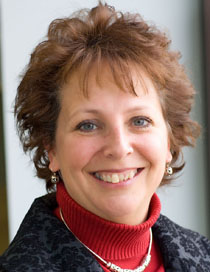
Faith

Heil
With tombstones for beds and grave markers for pillows, thousands of families in Manila will go to sleep tonight in the cemetery they call home. In the bustling capital city of the Philippines, the most marginalized of its citizens seek refuge in a sprawling graveyard. Invisible to most of the city, the residents of the cemetery live with just one public toilet, no running water, and no electricity save for what is cobbled illegally from the city system.
People continue to pour in form the countryside, looking for work in the city, helping to make Manila one of the most densely populated cities in the world. Most of the residents have no income. They survive by doing odd jobs like keeping the cemetery clean or caring for a family's gravesite.
As with most informal settlements around the globe, city leaders tried several times to evict the people who had nowhere else to go. After a while they gave up, turning a blind eye those who would be born, live, and die in a graveyard.
And so, a community survived in the strangest of places. Bits of cardboard and plastic were used to make shelters over the graves to protect sleeping children from the elements; clotheslines were strung across tombs to dry meager belongings. Children played amid the tombs and parents scrounged for food in the garbage. It seemed a place without hope -- until the missionaries arrived.
Columban missionaries from Korea, Sister Bella and Sister Julie, are taking steps to restore hope and dignity. Sister Julie says, "There is no privacy in the cemetery and the children are exposed to all sorts of things that they shouldn't be. Sadly, they are very vulnerable."
To give them a place to "be children", the Sisters started The Mosaic Center.
What began as an outdoor makeshift classroom for faith formation has become a haven for the children. Open daily, The Mosaic Center offers the little ones different activities: supervision of homework and reading, access to a nutritious meal, and even a regular shower. On Saturdays, the Sisters concentrate on art and music. Sundays, of course, is reserved for faith formation.
Ordinary things in an extraordinary setting have been pieced together.
With the help of missionaries, a tomb is transformed; the hope that is Easter is proclaimed. As we come to the end of Easter Season 2024, we invite you to become a part of this beautiful montage of service. Pray for the forgotten and give to the missions.
Join our ever-expanding mosaic of mission ministry.
- Maureen Crowley Heil is Director of Programs and Development for the Pontifical Mission Societies, Boston.
Recent articles in the Faith & Family section
-
Did you know?Father Robert M. O'Grady
-
Sowing the Seeds of FaithMaureen Crowley Heil
-
Bread left overScott Hahn
-
Scripture Reflection for July 28, 2024, Seventeenth Sunday in Ordinary TimeJem Sullivan
-
What the universal call to holiness entailsDr. R. Jared Staudt





